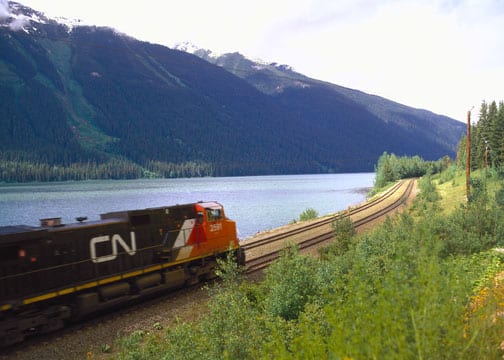Canadian National Railway Company (CN) is growing its temperature-controlled capacity, which is good news for the food and beverage supply chain. Canada’s largest railway fleet recently purchased 200, 53-foot domestic refrigerated containers and another 32 electric generators for ocean temperature-controlled ships, greatly expanding their cold chain capabilities for North American food and beverage shippers. Additionally, plans for a $196M intermodal and logistics hub near Toronto are underway (MarketWatch).
This increased refrigerated cargo capacity improves intermodal transit and creates opportunities in a variety of ways:
- Safer Cold Chain. The FDA’s 2011 Food Safety Modernization Act (FSMA) kicks in at the end of August, requiring strict adherence to new refrigerated container regulations, including careful monitoring of temperatures in the cold chain. CN’s added temperature-controlled capacity meets these requirements with remote container monitoring, a dedicated temperature-controlled management team, and specialized CargoCool refrigeration and EcoTherm insulated container services (JOC.com).
- Lower Costs. Rail and refrigerated intermodal costs-per-mile decrease substantially for hauls of 500 miles or longer, often saving food and beverage shippers 20% or more over OTR refrigerated trucking. More capacity means more ways to save.
- Faster Transit. Today’s rail transit times have decreased, with increased train speeds and lower rail yard dwell times. An average, coast-to-coast, refrigerated intermodal shipment now takes just eight days—two days less than OTR. CN boasts some of the fastest transit times in the industry and a 90% on-time arrival rate, making speedy intermodal options even more attractive (CN).
- Reduced Volatility. Railways offer standardized schedules, predictable pricing, reduced handling, greater flexibility, and opportunities to streamline reverse logistics. As food and beverage shippers juggle the truck driver shortage, limited driving hours regulations, road construction, and unpredictable fuel costs, they’re rethinking old OTR models (Inbound Logistics).
- Strategic Expansion. CN collaborates with a number of rail and refrigerated intermodal service providers, expanding its reach throughout Canada, the US, Mexico, and overseas.
Contact the Capstone team to learn how we can leverage CN’s growing temperature-controlled fleet to benefit your company’s supply chain.
Photo Credit: © Canadian National Railway Company

